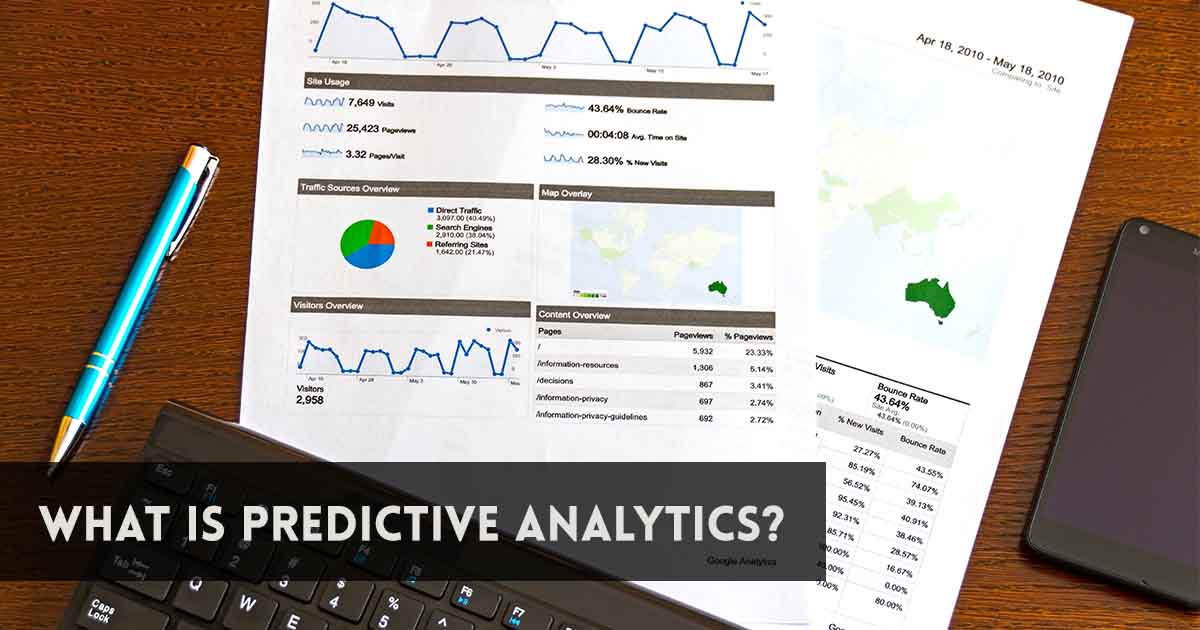Predictive analytics is used to make future estimations of unknown events using techniques from statistics, mining data, ML, and AI. Based on historical data, predictive analytics with the use of data, statistical algorithms, and machine learning techniques identifies the likelihood of future results. The aim is to go beyond knowing what happened to provide an efficient understanding of what’s going to happen in the future.
In business, predictive models analyze trends to classify threats and opportunities contained in historic and relational data. Models map interactions among several factors to enable risk evaluation or potential aligned with a given set of conditions to direct the decision-making process for target transactions Credit scoring is among the best-known programs and is utilized in financial services.
Predictive Analytics Process
- Define project: describe project performance, deliverable, initiative scope, company priorities, classify the datasets that will be used.
- Data collection: Data processing for predictive analytics provides information for review from various sources. This offers a full picture of the experiences with consumers.
- Data Analysis: Data Analysis is the method of reviewing, cleaning and modelling data with the goal of finding and determining valuable details
- Statistics: Statistical Analysis allows the validation, hypothesis, and testing of presumptions using conventional mathematical models.
- Modelling: Predictive modelling offers the capacity to construct accurate prediction predictions of the future automatically. There are also choices for utilizing a multi-modal assessment to select the right answer.
- Deployment: Predictive model implementation offers the alternative of applying empirical findings in everyday decision-making processes to produce outcomes, reports, and performance by automating modelling-based decisions.
- Model monitoring: Projects are controlled and tracked to check the success of the process and ensure it is producing the anticipated outcomes.
Types of Predictive Analytics
- Predictive models: Predictive modelling utilizes predictive models to evaluate the relationship between a unit’s actual output in a sample and one or more of the unit ‘s defined attributes or features. The model’s goal is to determine the probability that the same result would be demonstrated by a related unit in a separate study.
- Descriptive models: Descriptive structures measure data interactions in a way sometimes used to assign customers or opportunities into categories. Unlike statistical models focussing on forecasting a consumer activity (such as default risk), descriptive models describe several specific consumer or commodity interactions. Descriptive models do not rate consumers by their probability that they may take specific behaviour as quantitative models do.
- Decision models: Decision models explain the interaction between all components of a decision — the established evidence (including predictive method outcomes), the decision, as well as the decision’s predicted effects — to simulate the outcomes of decisions containing several factors.
Applications
Some of the widely used applications of Predictive Analytics are Analytical customer relationship management, Clinical decision support systems, Collection analytics, Direct marketing, Inventory Prediction, Fraud detection, Project risk management, and Predicting outcomes of legal decisions.
All you need to know about Business Analytics
Learn Business Analytics
| Top 7 Business Analytics University/ Colleges in India | Top 7 Training Institutes of Business Analytics |
| Top 7 Online Business Analytics Programs | Top 7 Certification Course of Business Analytics |
Learn Business Analytics with WAC
Other Skills in Demand
| Artificial Intelligence | Data Science |
| Digital Marketing | Business Analytics |
| Big Data | Internet of Things |
| Python Programming | Robotics & Embedded System |
| Android App Development | Machine Learning |

